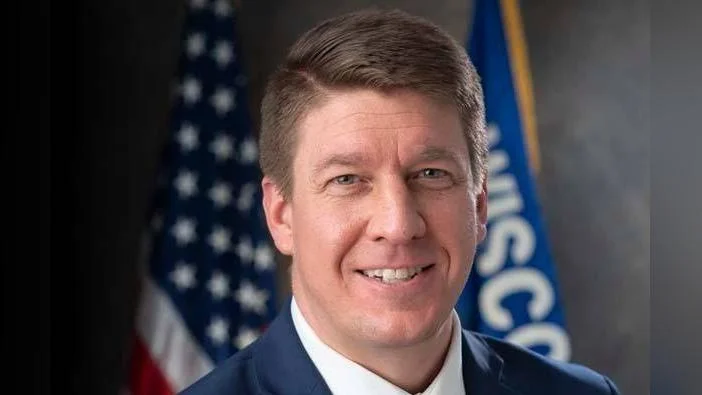Eric Wimberger, Wisconsin State Senator for 2nd District | Official Facebook
Eric Wimberger, Wisconsin State Senator for 2nd District | Official Facebook
According to the Wisconsin State Legislature's official website, the bill was described as follows: "eliminating a judgeship from district IV of the court of appeals and establishing an additional judgeship for district III of the court of appeals".
The following is our breakdown, based on the actual bill text, and may include interpretation to clarify its provisions.
In essence, this bill amends the Wisconsin statutes to alter the composition of the state's court of appeals, specifically by eliminating a judgeship in district IV and adding one in district III. Effective Aug. 1, 2026, district III will have an additional judge, while district IV will lose a judge following the expiration of a current judge's term on July 31, 2026. This change ensures all districts have four judges each. The initial election for the new district III judge is set for the spring election of 2026, with the elected judge serving a term from Aug. 1, 2026, to July 31, 2032.
The bill was co-authored by Representative Ron Tusler (Republican-3rd District). It was co-sponsored by Representative Elijah R. Behnke (Republican-6th District), Representative Lindee Rae Brill (Republican-27th District), and Representative Calvin T. Callahan (Republican-35th District), along with two other co-sponsors.
Eric Wimberger has authored or co-authored another 14 bills since the beginning of the 2025 session, with none of them being enacted.
Wimberger graduated from St. Cloud State University in 2001 with a BS and again in 2005 from Marquette Law School with a JD.
Wimberger, a Republican, was elected to the Wisconsin State Senate in 2025 to represent the state's 2nd Senate district, replacing previous state senator Robert Cowles.
In Wisconsin, the legislative process starts when a senator, constituent, group, or agency proposes an idea for a bill. After drafting, the bill is introduced, numbered, and referred to a committee for review and public input. If approved, it moves through three readings and votes in both the Senate and Assembly. Once both chambers pass the same version, the bill goes to the governor, who can sign it, veto it, or let it become law without a signature. Only a small share of bills introduced each session ultimately become law. You can learn more about the Wisconsin legislative process here.
| Bill Number | Date Introduced | Short Description |
|---|---|---|
| SB144 | 03/21/2025 | Eliminating a judgeship from district IV of the court of appeals and establishing an additional judgeship for district III of the court of appeals |
| SB128 | 03/14/2025 | Programs and requirements to address PFAS |
| SB127 | 03/14/2025 | Exempting certain persons from PFAS enforcement actions under the spills law. (FE) |
| SB84 | 02/26/2025 | Exempting certain conveyances between grandparents and grandchildren from the real estate transfer fee. (FE) |
| SB80 | 02/26/2025 | Statutory recognition of specialized treatment court and commercial court dockets |
| SB55 | 02/21/2025 | Prohibiting the Department of Justice from using the legal services of nongovernmental employees. (FE) |
| SB51 | 02/21/2025 | Flags flown at state and local government buildings and eliminating a related administrative rule |






 Alerts Sign-up
Alerts Sign-up